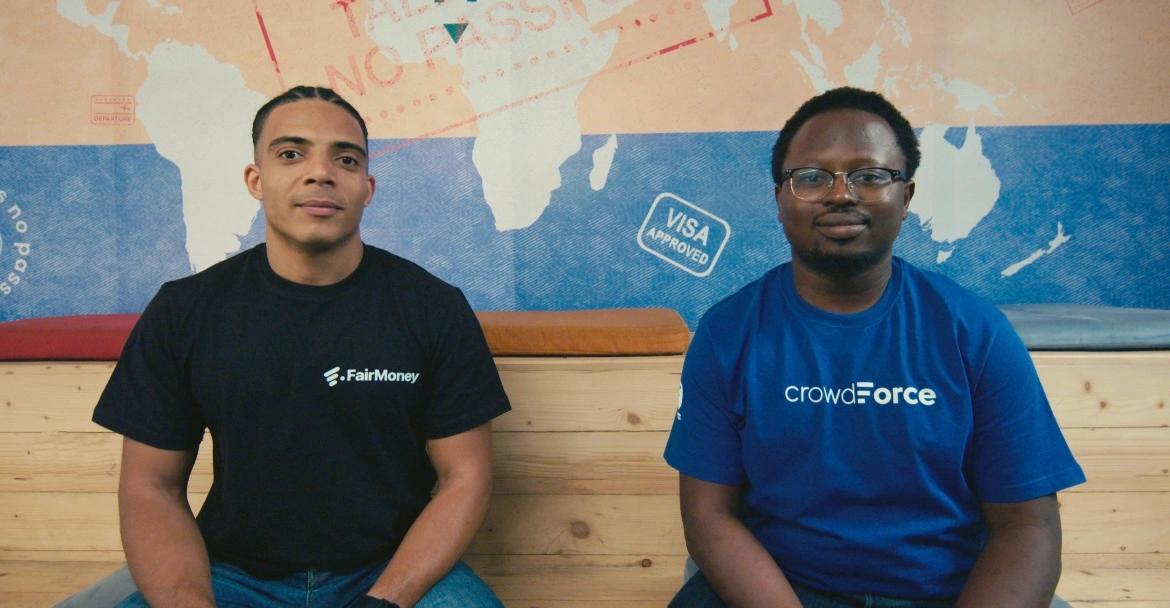FairMoney, a Nigerian credit-led digital banking platform, has acquired PayForce, a small company merchant payment service, as the digital lender seeks to widen its financial services offering to merchants.
PayForce is a subsidiary of CrowdForce, which is financed by YC.
The contents of the two companies’ arrangement were kept under wraps. Yet, evidence received from a variety of sources indicates that the transaction entailed a cash and stock exchange worth $15 million to $20 million.
As part of the agreement, CrowdForce CEO Oluwatomi Ayorinde will join FairMoney. He will be in charge of FairMoney’s PayForce by FairMoney payments business segment.
The continent’s financial sector continues to underserve the bulk of African firms and consumers. This is especially true in Nigeria, where according to the World Bank, 64 million people lack access to financial services.
Whilst CrowdForce delivers agency banking services through PayForce, a branchless banking model that extends financial services to the last mile through a network of human ATMs, FairMoney has predominantly run a credit-led neobanking approach that targets retail consumers.
Yet, multiple iterations, competition-induced innovation, and attracting venture funding have driven both organisations to evolve beyond their core products to a multitude of offers as the digital retail and merchant banking industry increases.
Read also: ‘FairMoney’ updates its mobile app with new features
Measures PayForce has taken to improve the operation
PayForce began by supplying merchants with point-of-sale (POS) devices and enabling them to provide cash-in, cash-out, transfer, and bill payment services to retail customers while supplying liquidity through a network of partners.
The financial technology company, which provides its services to more than 10,000 companies, has expanded its product range to include business banking, finance team tools, B2B payments, and virtual cards. In February of 2016, it completed a pre-Series A funding round that brought in around $3.6 million.
On the other hand, FairMoney began with a digital lending product that offers loans ranging from 15 days to 24 months to consumers who are mostly engaged in retail trade. According to CEO Laurin Hainy, the company, which obtained a $42 million Series B in 2021, currently offers debit accounts and cards, P2P transfers, and payments to over a million retail users and small companies.
FairMoney’s CEO shares more details
According to Hainy, the purchase would give incentives for PayForce-acquired merchants that use FairMoney as their primary bank, such as an 18% annual return on deposits, a rate he claims retail shoppers are taking advantage of on the platform.
In addition to this, he stated that FairMoney would build unique credit solutions for various types of businesses in order to address one of the most significant challenges that small businesses in Nigeria face, namely access to loans and working capital.
In addition, it is not an implausible hypothesis to suppose that FairMoney may pursue the banking business of some of the offline consumers that CrowdForce has catered to over the course of its existence.
“We see ourselves as a retail bank, but the line between merchants and retail is often blurry. We’ve thought about the merchant space more and more, and we see a lot of potential synergies between what PayForce and we have built independently,”
“We know that if we combine both businesses, their merchants will enjoy what our retail customers already enjoy,” he added.
One of the nation’s dominant retail neobanks, FairMoney will be expecting PayForce, which, according to Hainy, enables small businesses to handle several pain points and lets them comprehend their finances better and make more revenue through its “well thought-out” product, provides it with a much-needed merchant-focused value proposition that strengthens its position in the country’s business banking space.
Pertaining the competition in the acquiree’s space, Hainy said, “Our view is that PayForce has an advantage because their software is built for the finance manager and small business owners.”
“PayForce helps them make more money versus a lot of the other competition, which we think are agency banking businesses as they did not build a product with the merchant in mind; they build the product with the agent in mind. There is a huge difference, so we’re not worried about the competitive landscape there.”
FairMoney hopes to become the “number one” retail and merchant bank in Nigeria through the purchase, according to Hainy. The fintech plans to offer retail credit cards, remittance, stock, and investment products, as well as payroll services, BNPL, and online merchant purchasing.
















